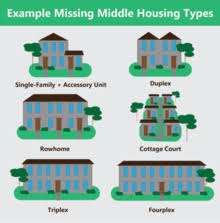A new federal Covid-19 relief bill includes rental assistance funds and the extension of an eviction moratorium, offering a lifeline to some renters in the suffering Orlando area.
The $900 billion spending deal was passed by both the U.S. Senate and House of Representatives on Dec. 21 and needs a signature from U.S. President Donald Trump to become law. If that happens, the federal government will allocate $25 billion in rental assistance.
That help is needed since Florida ranked No. 2 among U.S. states for the percent of renters facing eviction at 15.6%, according to a recent report from AdvisorSmith.
Working with renters
That means Florida would get north of $1 billion in assistance dollars, according to an analysis by the National Low Income Housing Coalition. The Washington D.C.-based housing advocacy group estimates that $1.4 billion will be allocated to the Sunshine State.
That money would flow directly to cities with a population of 200,000 people or more, while other municipalities would get access to the funds through the state government, Amanda Gill, government affairs director for the Florida Apartment Association, told Orlando Business Journal.
That’s important locally, as Orlando and southeast Florida are among parts of the state with the highest rates of rent delinquency, Gill said. “The parts of the state where the economy is more heavily focused on tourism are harder hit.”
The Orlando-based apartment industry group has witnessed success among its members in working with residents to set up payment plans to avoid evictions, Gill said. For example, a Florida Apartment Association survey of 101,000 apartment units across the state found that 2.65% of property owners had units on payment plans, while less than 1% had filed evictions.
Likewise, the association is encouraging members to help renters navigate rent relief options and applications. That includes setting up computer labs for renters who cannot access the online resources required and establishing Saturday office hours to help renters fill out applications, Gill added.
There are eligibility requirements for the funds. The bill requires rental households to have 2020 incomes at or below 80% of the area median income. State and municipalities are stipulated to prioritize households earning 50% or less of the area median income, or renters who have been unemployed for more than 90 days.
‘Continue to make a difference
The relief package also would extend an eviction moratorium previously enacted by the Centers for Disease Control and Prevention. The federal moratorium is set to expire on Dec. 31, but the bill extends it to Jan. 31.
While the order offers good eviction protections, those don’t apply to renters automatically, Bethanie Barber, executive director of the Legal Aid Society of the Orange County Bar Association, previously told OBJ. Residents who have been affected by the pandemic must fill out a declaration form and present it to their landlords to avoid eviction.
Amid the pandemic, renters are having a tougher time making their monthly payments. 89.8% of U.S. apartment households made a full or partial rent payment by Dec. 20, according to the National Multifamily Housing Council. That’s down from 93.2% that made payments by Dec. 20 of last year. It’s also slightly down from 90.3% as of Nov. 20.
Local municipalities already have used federal dollars to prevent evictions at a time when the Orlando metro’s unemployment rate is the worst in Florida. For example, Orange County on Dec. 14 closed the application portal for an eviction diversion program that was allocated $20 million of CARES Act funding to pay past-due rent. The program helped to house 161 homeless individuals and families, and kept another 238 individuals and families from becoming homeless, Orange County Mayor Jerry Demings said during a Dec. 21 press conference.
“We are hoping lawmakers in our nation’s capital will send additional funding our way so we can continue to make a difference in the lives of our residents,” Demings said.






0 Comments